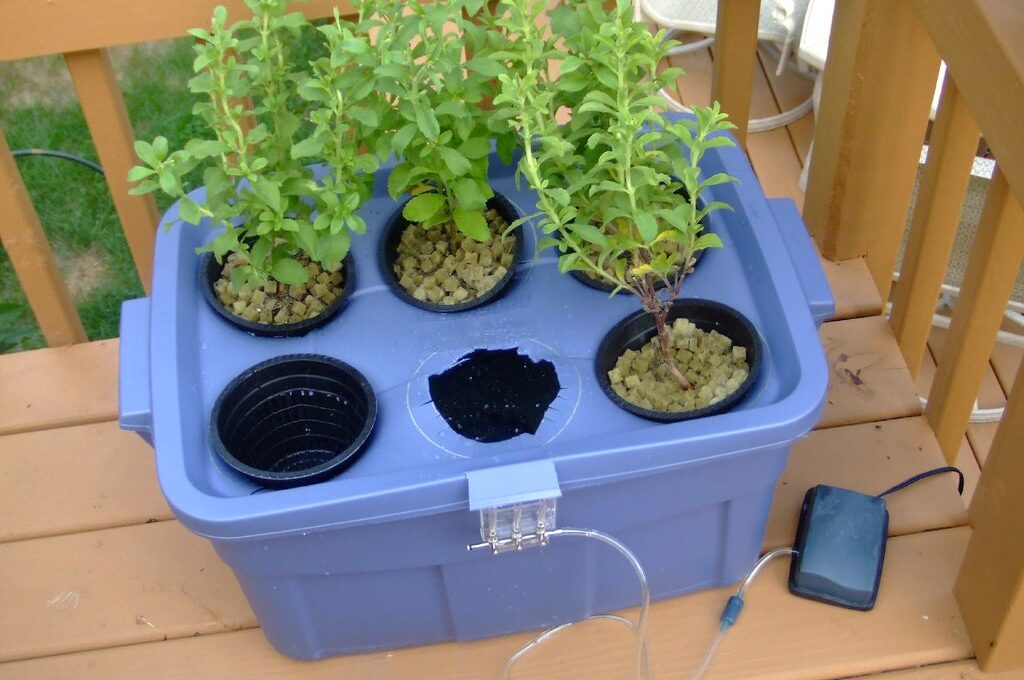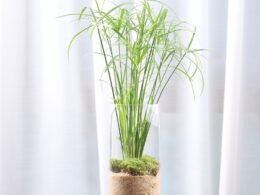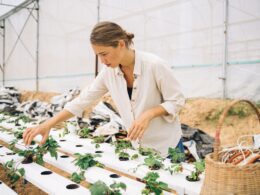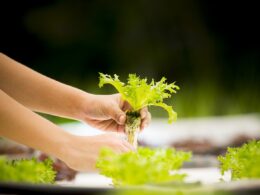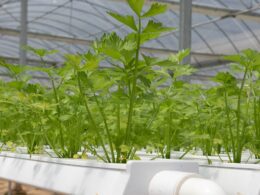If you’re new to hydroponics, you might be wondering about the signs of overwatering your plants. Overwatering is a common mistake that can lead to root rot, nutrient deficiencies, and stunted growth. But how can you tell if your plants are getting too much water?
In this article, we’ll cover the signs of overwatering in hydroponic systems, what causes it, and how to avoid it.
First, let’s define hydroponics. Hydroponics is a method of growing plants without soil, using nutrient-rich water instead. This system requires careful monitoring of water levels and nutrient concentrations, as plants can quickly become waterlogged or starved if the conditions are not optimal.
Overwatering is a common problem in hydroponics, as it’s easy to assume that more water is better for the plants. However, too much water can be just as damaging as too little. So, if you want to ensure healthy and vibrant plants in your hydroponic system, it’s important to understand the signs of overwatering and how to prevent it.
Understanding the Hydroponic System
We’re diving into the world of hydroponic gardening and exploring how this unique system works. Hydroponic gardening is the process of growing plants in a nutrient-rich, water-based solution, instead of using soil. This method provides many benefits, including faster growth rates, higher yields, and the ability to grow plants year-round.
There are many common hydroponic setups, including deep water culture, drip irrigation, and nutrient film technique. Deep water culture involves suspending plant roots in a nutrient-rich water solution and ensuring they receive adequate oxygen. Drip irrigation involves slowly dripping nutrient solution onto the base of the plant, while nutrient film technique involves a thin film of nutrient solution constantly flowing over the roots.
Understanding the hydroponic system is key to avoiding overwatering. With hydroponics, it’s important to maintain a balance between nutrient solution and air in the root zone. Overwatering can lead to root rot, which can quickly spread and kill the entire plant.
Keep a close eye on your plants and adjust your watering schedule or nutrient solution accordingly to avoid overwatering.
Signs of Overwatering
If your plants are wilting and the soil is constantly saturated, it’s possible you may be giving them too much water in your hydroponic setup. Overwatering can lead to a host of problems that can negatively affect plant health.
Here are some signs that your plants may be overwatered:
- Yellowing leaves: When plants are overwatered, the roots can become waterlogged, leading to a lack of oxygen in the soil. This can cause the leaves to turn yellow and eventually die off.
- Stunted growth: Overwatering can also stunt plant growth, as the excess water can suffocate the roots and prevent them from absorbing nutrients.
- Foul odor: If you notice a foul smell coming from your hydroponic setup, it could be a sign of overwatering. A buildup of stagnant water can lead to bacterial growth, which can cause root rot and other issues.
To avoid overwatering, it’s important to monitor soil moisture levels carefully. Make sure to check the soil regularly and only water when it’s dry to the touch. Additionally, it’s a good idea to provide adequate drainage in your hydroponic system to prevent water from accumulating and causing problems.
By taking steps to prevent overwatering, you can help ensure that your plants stay healthy and thrive in your hydroponic setup. Remember to keep an eye on soil moisture levels and address any issues promptly to keep your plants in top condition.
Causes of Overwatering
To prevent your hydroponic plants from suffering, it’s important to understand the causes of overwatering. One major cause is improper drainage. If your setup doesn’t allow excess water to escape, it can build up and drown your plants’ roots. This can lead to stunted growth, yellowing leaves, and ultimately, plant death.
Another cause of overwatering is simply watering too frequently. While it’s important to make sure your plants have enough water, it’s also important to allow the growing medium to dry out in between waterings. If you’re watering too often, the roots will never have a chance to dry out, and they’ll begin to rot. This can also lead to a lack of oxygen in the root zone, which can further damage your plants’ growth.
Overwatering can have a number of negative effects on plant growth. In addition to stunted growth and yellowing leaves, it can also lead to mold, fungus, and other diseases that thrive in moist environments. Proper drainage is crucial to preventing overwatering and ensuring your plants stay healthy.
Make sure your setup allows for excess water to escape, and only water your plants when the growing medium has had a chance to dry out. By taking these simple steps, you can help your hydroponic garden thrive and produce healthy, vibrant plants.
How to Avoid Overwatering
Make sure you’re not drowning your plants by allowing excess water to escape and giving the growing medium time to dry out between waterings. Overwatering can cause the roots to suffocate and die, leading to stunted growth or even plant death.
Preventive measures can be taken to avoid overwatering, such as using a well-draining growing medium and only watering when the top layer of the medium is dry to the touch. Proper drainage is also essential to avoid overwatering.
Make sure your hydroponic system has sufficient drainage holes or channels to allow excess water to escape. If you notice standing water in your system, it’s a sign that you need to adjust your drainage system or reduce the frequency of watering. Additionally, avoid using saucers under your growing containers as they can trap excess water and cause root rot.
Incorporating preventive measures and ensuring proper drainage can help you avoid overwatering your hydroponic plants. By paying attention to the moisture level of your growing medium and allowing excess water to escape, you can create a healthy environment for your plants to thrive in.
Remember, it’s better to underwater than overwater, so err on the side of caution and only water when necessary.
Conclusion and Additional Tips
In order to create a thriving and healthy environment for your hydroponic plants, it’s important to incorporate preventive measures and ensure proper drainage. One of the most important things you can do is maintain a proper nutrient balance. Overfeeding your plants can lead to overwatering, which can stunt growth and even kill your plants. Make sure to follow a feeding schedule and only give your plants the recommended amount of nutrients.
If you do end up overwatering your hydroponic plants, there are a few things you can do to treat them. First, remove any excess water from the reservoir and allow the plants to dry out. You can also increase airflow around the plants by adding a fan or opening a window. Additionally, you can add a hydrogen peroxide solution to the water to help prevent root rot.
However, prevention is always the best course of action, so make sure to monitor your plants regularly and avoid overwatering in the first place.
Overall, maintaining a healthy nutrient balance and avoiding overwatering are crucial for the success of your hydroponic garden. By following a feeding schedule and monitoring your plants regularly, you can create a thriving environment for your plants to grow and flourish. And if you do end up overwatering, don’t panic – there are steps you can take to treat your plants and get them back on track.
Frequently Asked Questions
Can overwatering in hydroponics cause plant diseases?
Preventing plant diseases is crucial in hydroponics, and overwatering is one of the most common mistakes that can lead to them. However, there are drainage solutions that can help you avoid this problem.
The key is to ensure that your hydroponic system has proper drainage. This means that there should be a way for excess water to escape from the roots. Without this, the roots can become waterlogged, which can lead to root rot and other diseases.
By making sure that your system has proper drainage, you can prevent overwatering and ensure that your plants stay healthy and disease-free.
How can I accurately measure the moisture level in my hydroponic system?
To accurately measure the moisture level in your hydroponic system, you’ll need a reliable tool like a moisture meter. These devices are designed to give you an accurate reading of the moisture content in your growing medium, allowing you to adjust your watering schedule accordingly.
Measuring accuracy is crucial in hydroponics, as overwatering can lead to a host of problems, including root rot and other plant diseases. By monitoring your moisture levels regularly, you can ensure that your plants are getting the right amount of water they need to thrive, without risking overwatering.
So, invest in a good moisture meter today and take the guesswork out of your hydroponic gardening!
Is it possible to recover plants that have been overwatered in hydroponics?
If you’ve overwatered your hydroponic plants, don’t panic! There are ways to help them recover.
First, make sure to address the root cause of the overwatering and take steps to prevent it from happening again in the future. Hydroponic plant recovery tips include reducing the frequency of watering, improving drainage, and adjusting the nutrient solution. You may also need to prune any damaged or diseased parts of the plant.
It’s important to monitor the moisture levels closely and only water when the top inch of the growing medium is dry. With some patience and care, your hydroponic plants can bounce back from overwatering.
Preventing overwatering in hydroponics is key to keeping your plants healthy and thriving.
What are some common mistakes that beginners make when it comes to watering in hydroponics?
When it comes to hydroponics, watering is a crucial aspect of plant growth. However, beginners often make common watering mistakes that can lead to overwatering.
Preventing overwatering in hydroponics involves avoiding these mistakes, such as watering too frequently or not allowing enough time for the growing medium to dry out between watering.
To ensure the health and growth of your hydroponic plants, it’s important to follow proper watering techniques and pay attention to the needs of your specific plant species.
By being mindful of these common watering mistakes, you can avoid overwatering and promote successful hydroponic growth.
How does overwatering affect nutrient uptake in hydroponic plants?
Overwatering in hydroponic plants can have negative effects on nutrient uptake, causing nutrient deficiencies and growth stunting. When plants are overwatered, the roots are deprived of oxygen, which can lead to root rot and other diseases. This, in turn, affects the ability of the roots to absorb nutrients and water, leading to nutrient deficiencies and stunted growth.
It’s important to avoid overwatering by monitoring the moisture levels in the growing medium and only watering when necessary. By taking care to prevent overwatering, you can ensure healthy and thriving hydroponic plants.
Conclusion
In conclusion, overwatering is a common problem in hydroponic gardening, but it can be easily avoided with proper care and attention.
Remember to check the moisture level of your plants regularly and adjust your watering schedule accordingly. If you do notice signs of overwatering, such as yellowing leaves or a musty smell, take action immediately by adjusting your watering schedule and improving drainage.
Additionally, make sure to use high-quality growing media and avoid overcrowding your plants to prevent excess moisture buildup. By following these simple tips and keeping a close eye on your hydroponic system, you can ensure that your plants thrive and produce a bountiful harvest.
Don’t let overwatering ruin all your hard work – stay vigilant and attentive to your plants’ needs, and you’ll be rewarded with healthy, vibrant growth.
Happy gardening!





